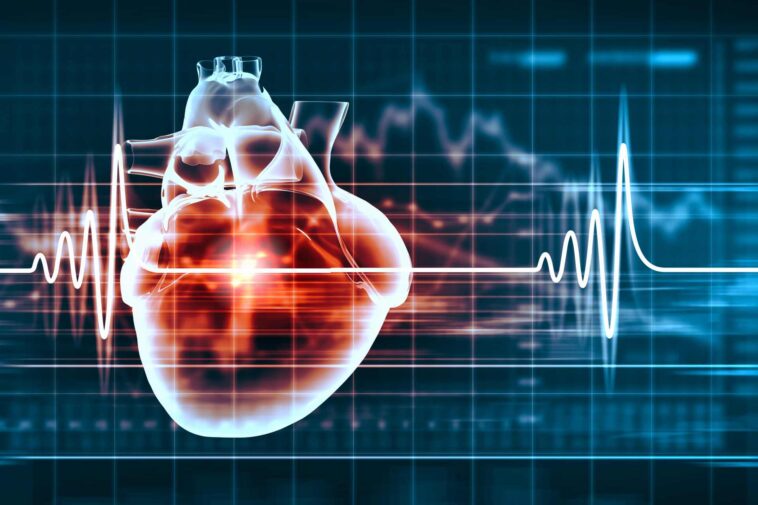The brain is a complex organ that is the master controller for all the other organs of the body.
Twelve nerves emerge from the head and innervate different muscles and organs. Of this, the tenth one is named the vagus nerve.
The term vagus means wandering in Latin. It is rightly named vagus as it travels long distances in the body and connects distant portions with the central nervous system. It is vital for various body functions like breathing, heartbeat, digestion, urination etc.
This nerve controls the parasympathetic nervous system of the body. Parasympathetic means the system which keeps the body in a calm state. It lowers the heartbeat, affects the eye pupil, and relaxes the muscles. An irritated vagus can have multiple ramifications. People can find more here about vagus nerve disorders and relevant therapeutic advancements.
6 Signs That Shows That One Has An Irritated Vagus
1. Trouble With Digestion

The vagus is also known as the pneumogastric nerve because it has a crucial role in controlling the functioning of the digestive system. Any irritation in the pneumogastric system results in symptoms like acid reflux, alternate periods of diarrhea and constipation and intestinal bacterial overgrowth.
The pneumogastric system is essential for maintaining the high acid levels in the digestive system. It works by activating those enzymes which work on acid production. The acid in the digestive system is important for controlling the growth of bacteria. If the pneumogastric system is affected, it lowers the acid levels and promotes the growth of bacteria.
Small intestinal bacterial growth can be diagnosed with non-invasive methods like breath analyzers. If the breath has a high content of gasses like hydrogen or methane, then it implies the presence of excess bacteria in the gut. However, the symptoms can be managed by antibiotics or massage therapy.
2. Effect On The Heart Rate

The vagus nerve acts like a natural pacemaker for the heart. If it is overstimulated, it lowers the heartbeat, and a person might faint due to low blood pressure. If it is under stimulated, the heart rate increases rapidly.
The sudden increase in heart rate causes palpitations and feelings of hot flashes in affected individuals. People can feel their heartbeat in the skin behind their ears, the sides of their necks etc. At times they feel a sudden warmth in areas near the face or around their chest, and this is followed by sweating.
Vagus nerve maneuver therapy is used to treat these symptoms. The therapy involves simple responses like coughing, gagging or even repeated handshakes. Massage therapy that involves applying pressure around the abdominal areas is also used. Massage therapy works well for most individuals, including children. However, if people complain of pain in the chest area or if they feel shortness of breath, then the therapy is discontinued.
The maneuver and massage therapy have a 40% success rate. These therapies are known to have reduced heartbeats exceeding 100 beats per minute to almost normal levels.
3. Changes In The Amount Of Saliva And Mucus Produced

Saliva produced in the mouth aids in breaking down and digesting food particles. It also helps in swallowing food. Mucus is produced in the nose, and in other body cavities like the gut, mouth etc. The mucus performs important immunological functions and protects internal organs against foreign particles.
The vagus nerve innervates the tongue and face region and plays a vital role in the secretion of saliva and mucus. Hence if it is irritated, it affects the production of saliva and mucus. If the saliva production is less, the mouth becomes dry and swallowing becomes difficult. Likewise, if the mucus production is decreased, then breathing becomes difficult.
If a person has problems swallowing or feels his mouth has dried up suddenly, then neuronal defects can be spotted using CT scans and MRIs. Massage therapy is quite effective in dealing with the symptoms.
Vagus nerve stimulation, where an electrical current is used to activate the neurons, has also been effective in treating the symptoms. External electrical stimulation mimics the biological activity of neurons where transmission of information happens via electric impulses.
4. Difficulty In Speaking
A disturbed vagus causes speech difficulty or inability to speak at all. It might also lead to a sudden alteration in the quality of voice. Speech therapy, which involves making sounds, breathing exercises and exercises to improve the strength of vocal muscles, is quite useful. However, if speech therapy fails to show any significant improvement over time, patients can be advised to go for electrical stimulation of the neurons.
5. Reduced Sensory Perception

The vagus nerve is important for receiving sensory information from behind the ear and the extended outer part of the ear, regions of the throat etc. If the vagus is irritated, a person will be less perceptive to such sensations.
6. Difficulty In Urinating
Vagus nerve controls bladder movement during urination. Muscles and neurons in the bladder region work in sync to hold the urine in it and void it at an appropriate time. When enough urine has accumulated in the bladder, the nerves send the message to the brain, affecting the bladder muscles to release urine. If the vagus nerve is affected, then people may have trouble controlling the time of urination.
Yoga and massage therapy are effective in dealing with the symptoms. However, for old adults, who cannot undertake physical strain, the symptoms can also be managed by using adult diapers.
Conclusion
The vagus is vital for many functions, any abnormality in it, be it from a tumor, an injury to the spinal cord or age related nerve degeneration, can severely affect an individual’s life. Hence, the treatment regimen should be multidimensional.
Antibiotic treatment and muscle exercise are the best options if just the symptoms are to be managed. If the root problem is to be dealt with, more invasive measures like surgical removal of brain tumors or electrical stimulation should be used. Apart from this, the treatment regimen should also consider the patient’s age and other chronic conditions.





